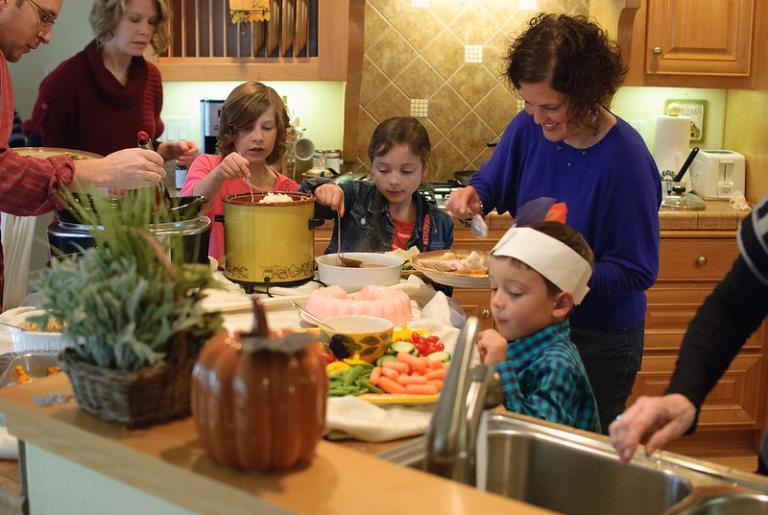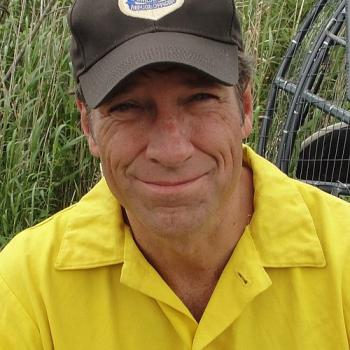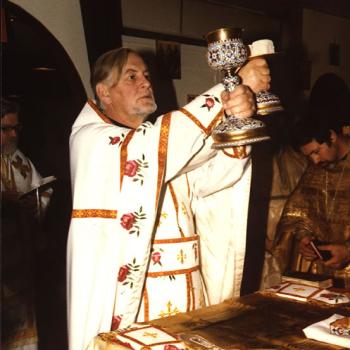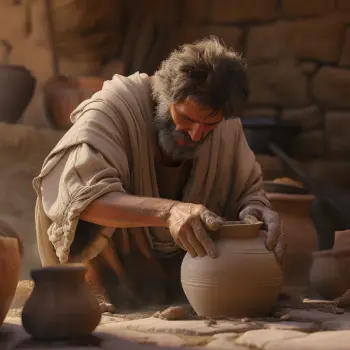On Thanksgiving we give thanks to God for all of our blessings. We express gratitude for our material belongings, for our family, for our country. Before the feast, we thank God for this food and the hands that prepared it. That is to say, Thanksgiving is about vocation.
Now consider this text from Luther, who develops this idea, and notice its relevance to Thanksgiving. From the Large Catechism, one of the definitive confessional documents of Lutheranism, in the explanation of the First Commandment, “Thou shalt have no other gods before Me” (my bolds):
26] For even though otherwise we experience much good from men, still whatever we receive by His command or arrangement is all received from God. For our parents, and all rulers, and every one besides with respect to his neighbor, have received from God the command that they should do us all manner of good, so that we receive these blessings not from them, but, through them, from God. For creatures are only the hands, channels, and means whereby God gives all things, as He gives to the mother breasts and milk to offer to her child, and corn and all manner of produce from the earth for nourishment, none of which blessings could be produced by any creature of itself. (LC, First Commandment, Paragraph 26)
These are great quotes about vocation:
“Whatever we receive by His command or arrangement is all received from God.”
“We receive these blessings not from them, but, through them, from God.”
“Creatures are only the hands, channels, and means whereby God gives all things.”
Thus, at Thanksgiving we are grateful for our parents, rulers, corn, “all manner of produce,” and on and on, and, while expressing our gratitude to the people who have blessed us in the work of their callings. I love what Kevin D. Williamson said about this:
As you cut into that turkey today, remember that somebody did the hard and dirty work of raising it, butchering it, packing it, driving the truck that brought it to your town, stocking the store shelves — and the very difficult work of figuring out how to get all that done, from domesticating turkeys to fueling that truck, a long unbroken line of human effort and ingenuity stretching back to the first guy who figured out how to chip a piece of stone a certain way to make it more useful.
And, in turn, our gratitude should go back further, to the God who has worked through all of these folks–giving them their skills, ingenuity, and opportunities–as “channels” of His love.
That Luther quote also reminds us that Christianity has a high view of creation; that is, physical reality. The entire universe has been created by our God. It is not an illusion, as in Buddhism; or a web of deception spun by a malign goddess, as in Hinduism; or a meaningless absurdity as in existentialism. Rather, the creation is good, indeed, very good: “And God saw every thing that he had made, and, behold, it was very good” (Genesis 1:31). Furthermore, the Second Person of the Trinity became incarnate in this creation, becoming a physical human being, who physically died and physically rose again. And God is not a distant deity looking down on the world from afar off, as in some religions; rather, He is intimately involved in His creation, feeding the fowls of the air, clothing the lilies of the field, and giving human beings what they need (Matthew 6).
And yet some Christian theologies, while agreeing with all of that, have managed to downplay the value of physical reality. Mysticism, subjectivity, neo-Platonism, dualism, and the influence of heresies such as Gnosticism have resulted in hyperspiritual versions of Christianity, in which the “spiritual realm” is seen as the true locus of religion, with the “material realm” being the source of all that is bad, something to escape from or separate ourselves from.
Lutheran theology is distinctive in the way it affirms the spiritual significance of physical reality. As Luther says in the passage from the Large Catechism, God uses His “creatures”–that is, His physical creation–to give His gifts. Thus we have the Lutheran emphasis on the Sacraments, on water and bread and wine as “channels and means” for the Gospel. Also the Lutheran doctrine of the Two Kingdoms, which sees God as already ruling in the physical and social worlds. And, of course, in the Lutheran understanding of vocation.
Another connection of Thanksgiving to vocation is that this holiday has become a time for family, which is the most foundational of our vocations, where husbands and wives, parents and children, grandparents and grandchildren, uncles and aunts and cousins can meet together to love and serve each other.
Photo: Thanksgiving dinner at Jerry and Yvonne Snyder’s by Loren Kerns, via Flickr, Creative Commons License


















